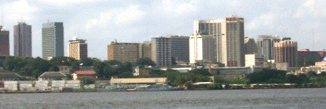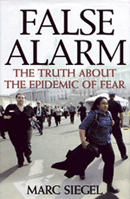
Brzezinski attacks Bush’s “suicidal statecraft”
WASHINGTON – Zbigniew Brzezinski, former national security adviser to Pres. Jimmy Carter and architect of the late 1970s plan to back Muslim fundamentalists against the Soviet Union in Afghanistan, has issued a scorching denunciation of the Bush administration’s “war on terror,” charging that it is “dangerously undercutting America’s seemingly secure perch on top of the global totem pole by transforming a manageable, though serious, challenge largely of regional origin into an international debacle.”


.gif)
